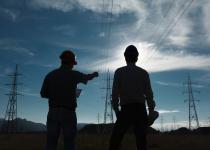On 3 August, the Obama Administration launched the Clean Power Plan (CPP). The plan places federally mandated emission limits on existing coal- and gas- fired power plants, with state policy makers tasked with developing a strategy to meet this goal.

World Coal Association calls for governments worldwide to support all low emission technologies equally
LONDON – The World Coal Association (WCA) has today called for governments worldwide to show a genuine commitment to widening the deployment of all low emission technologies, in order to meet global energy needs and make significant cuts in CO2 emissions.

Opinion: EPA’s Clean Power Plan Doesn’t Solve Climate Change Problem
One of the main arguments supporters use in favor of the EPA’s Clean Power Plan is that it will help solve the so-called “climate change” problem. “We are taking the most significant step in U.S. history toward reducing the pollution that causes climate change,” declared the Environmental Defense Fund.

Cap and trade deserves another look
SIX YEARS AGO, a cap and trade bill aimed at reducing U.S. carbon emissions (drafted in part by the Boilermakers union) passed the House of Representatives.

Latest Climate Pledges Demonstrate Need for Cleaner Coal Technology
Emissions reduction pledges by a range of countries in the lead-up to the COP21 climate negotiations in Paris demonstrate the need for more investment in low emission coal technology, World Coal Association (WCA) Chief Executive Benjamin Sporton said today. Many more countries will be making their pledges in the coming months.

Joachim Weimann: 'With renewables, we are wasting resources'
No form of support for renewable energy sources has an effect on the actual amount of CO2 reduction, says Magdeburg-based environmental economist Joachim Weimann, recommending emissions trading and burden-sharing with developing countries to tackle climate change.

Renewable energy all pain, little gain
CALGARY, Alta., and VANCOUVER, B.C. — BC Hydro's planned project for a hydroelectric dam on the Peace River - known as the Site C dam - is proving to be controversial, with some industry groups panning the plan while touting renewable energy sources such as wind. One wind energy champion recently claimed "it would be a breeze for $10-billion worth of wind-energy projects to inflate B.C.'s economy."







